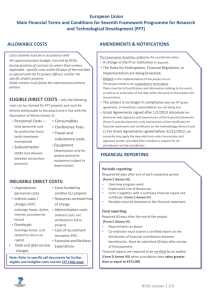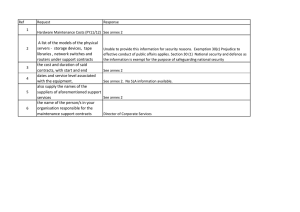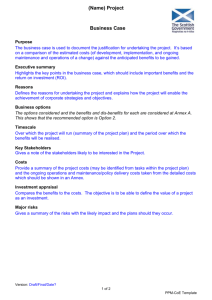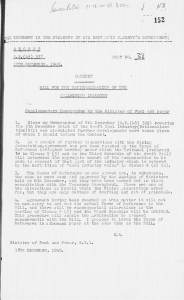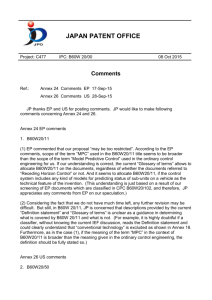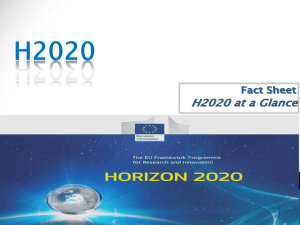European Union and Technological Development (H2020)
advertisement
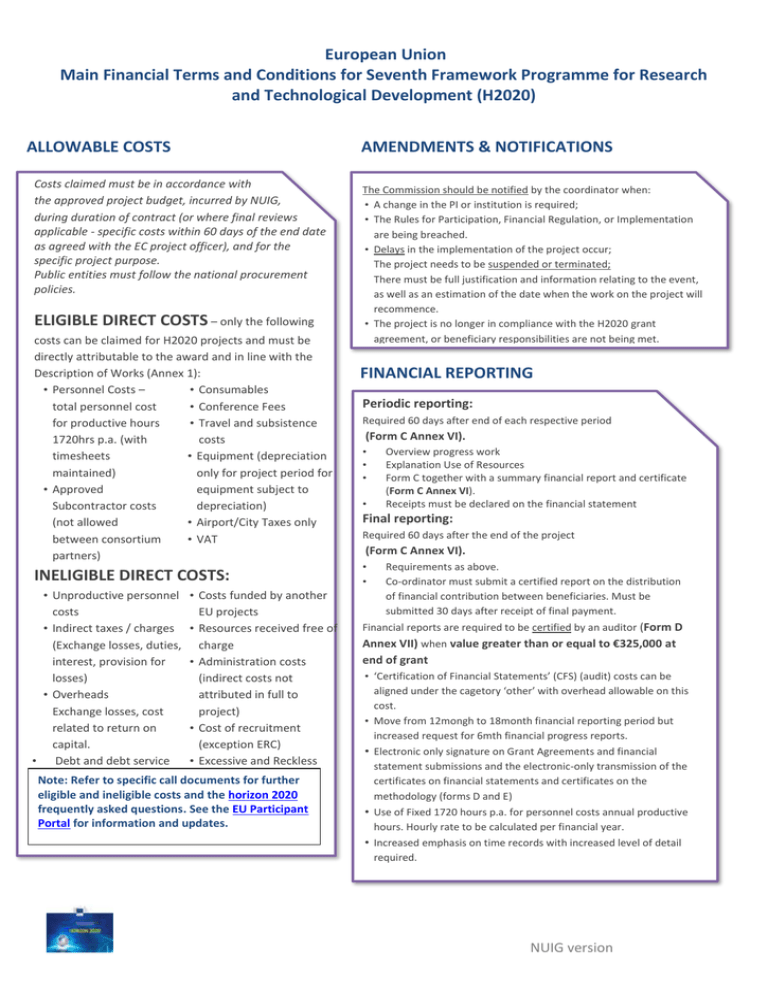
European Union Main Financial Terms and Conditions for Seventh Framework Programme for Research and Technological Development (H2020) ALLOWABLE COSTS Costs claimed must be in accordance with the approved project budget, incurred by NUIG, during duration of contract (or where final reviews applicable - specific costs within 60 days of the end date as agreed with the EC project officer), and for the specific project purpose. Public entities must follow the national procurement policies. ELIGIBLE DIRECT COSTS – only the following costs can be claimed for H2020 projects and must be directly attributable to the award and in line with the Description of Works (Annex 1): • Personnel Costs – • Consumables total personnel cost • Conference Fees for productive hours • Travel and subsistence 1720hrs p.a. (with costs timesheets • Equipment (depreciation maintained) only for project period for • Approved equipment subject to Subcontractor costs depreciation) (not allowed • Airport/City Taxes only between consortium • VAT partners) INELIGIBLE DIRECT COSTS: • Unproductive personnel • Costs funded by another costs EU projects • Indirect taxes / charges • Resources received free of (Exchange losses, duties, charge interest, provision for • Administration costs losses) (indirect costs not • Overheads attributed in full to Exchange losses, cost project) related to return on • Cost of recruitment capital. (exception ERC) • Debt and debt service • Excessive and Reckless charges Expenditure Note: Refer to specific call documents for further eligible and ineligible costs and the horizon 2020 frequently asked questions. See the EU Participant Portal for information and updates. AMENDMENTS & NOTIFICATIONS The Commission should be notified by the coordinator when: • A change in the PI or institution is required; • The Rules for Participation, Financial Regulation, or Implementation are being breached. • Delays in the implementation of the project occur; The project needs to be suspended or terminated; There must be full justification and information relating to the event, as well as an estimation of the date when the work on the project will recommence. • The project is no longer in compliance with the H2020 grant agreement, or beneficiary responsibilities are not being met. FINANCIAL REPORTING Periodic reporting: Required 60 days after end of each respective period (Form C Annex VI). • • • • Overview progress work Explanation Use of Resources Form C together with a summary financial report and certificate (Form C Annex VI). Receipts must be declared on the financial statement Final reporting: Required 60 days after the end of the project (Form C Annex VI). • • Requirements as above. Co-ordinator must submit a certified report on the distribution of financial contribution between beneficiaries. Must be submitted 30 days after receipt of final payment. Financial reports are required to be certified by an auditor (Form D Annex VII) when value greater than or equal to €325,000 at end of grant • ‘Certification of Financial Statements’ (CFS) (audit) costs can be aligned under the cagetory ‘other’ with overhead allowable on this cost. • Move from 12mongh to 18month financial reporting period but increased request for 6mth financial progress reports. • Electronic only signature on Grant Agreements and financial statement submissions and the electronic-only transmission of the certificates on financial statements and certificates on the methodology (forms D and E) • Use of Fixed 1720 hours p.a. for personnel costs annual productive hours. Hourly rate to be calculated per financial year. • Increased emphasis on time records with increased level of detail required. NUIG version
